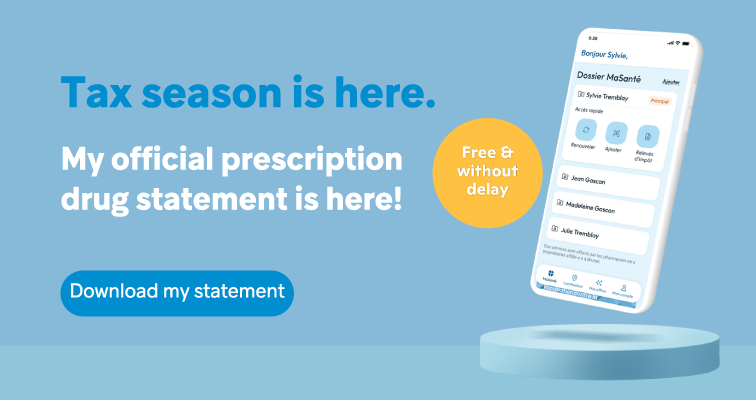Do you feel vaginal discomfort or itching? If so, you may suffer a vaginal yeast infection. While it can surely be bothersome and unpleasant, it is actually easily treated. Here are four essential things to know in order to understand, prevent, recognize, and treat vaginal yeast infections.

1
Understand
Most women will have at least one episode of vaginal yeast infection in their lives, and some will experience it several times. Although it’s a benign health problem that doesn’t generally bring about complications, it’s very inconvenient and can affect quality of life.
2
Prevent
It can be difficult to prevent vaginal yeast infections since they may occur naturally as a result of changes of the vaginal flora. However, simple preventative measures can be taken to reduce the risks:
- Maintain good personal hygiene
- Avoid using perfumed products around the vagina
- Avoid vaginal douches
- Avoid wearing a wet swimsuit for too long
- Avoid wearing clothing that is too tight as it increases the level of humidity in and around the vulva
If you’re taking antibiotics, have a weakened immune system, are pregnant, or suffer from diabetes, you may be more at risk for developing a vaginal yeast infection.
3
Recognize
Some vaginal yeast infections can go unnoticed, yet many cause uncomfortable and inconvenient symptoms. These can vary from one woman to another, or from one episode to the next, but typically include:
- Itching in or around the vagina and vulva
- Changes in the vaginal discharge (white, thick, or strong odor)
- Irritation or burning during urination or sexual intercourse
- Redness and swelling of the vulva
- Pain in the vulva and vagina
Other types of vaginal infections are due to bacteria, so it’s important to get a proper medical diagnosis to know which type of infection you need to treat. If you think you have a vaginal yeast infection, consult your pharmacist and doctor—they are there to help.
4
Treat
Medication for vaginal yeast infections are known as antifungals and come in many forms. They are sold as creams, ovules (which are inserted into the vagina) or pills that are taken orally. Before purchasing medication to treat a vaginal yeast infection, speak with your pharmacist or doctor to be sure to make the right choice, as some treatments require a prescription.
Vaginal yeast infections are rarely transmitted sexually, so there is no need to treat your sexual partner unless he shows symptoms (redness, irritation, or stinging sensation in the penis).
When to be alarmed?
In most cases, vaginal yeast infections do not cause any complications. However, it’s important to consult a doctor when you experience symptoms of a vaginal yeast infection if you:
Are pregnant;
- Are at risk of sexually transmitted infections;
- Have any unusual symptoms such as fever, vomiting or abdominal pain;
- Have had several vaginal yeast infections over the past few months.
